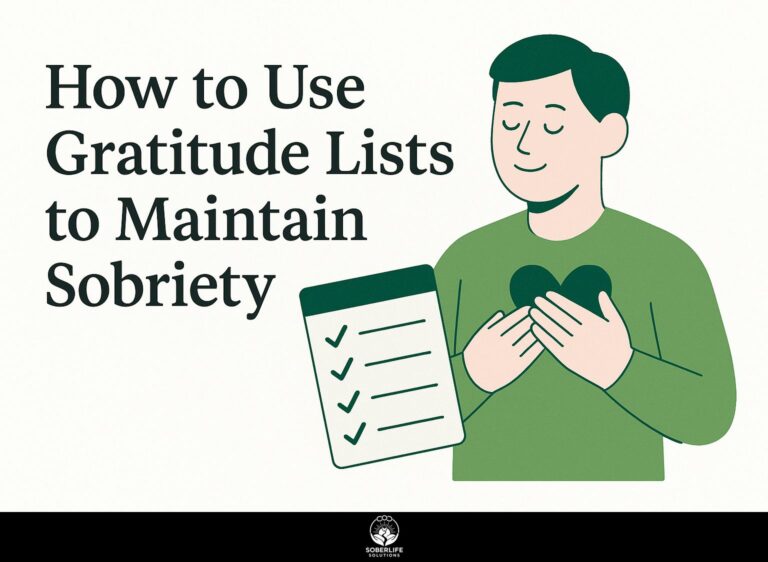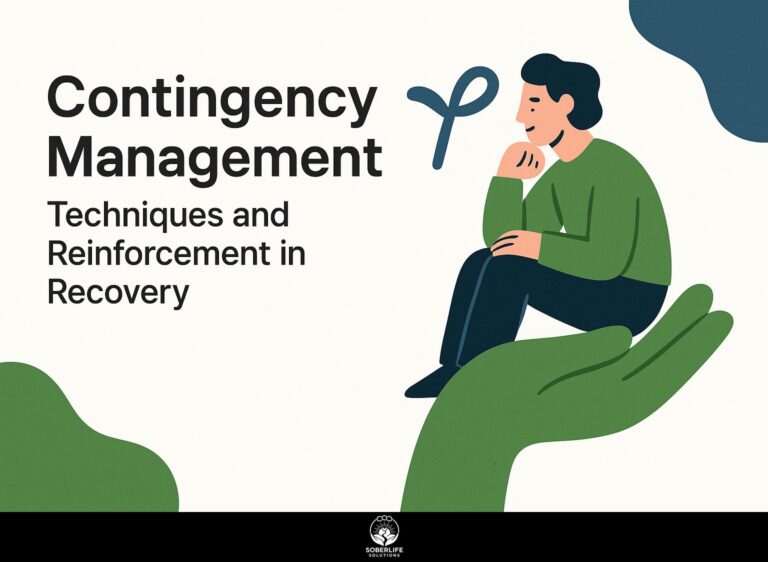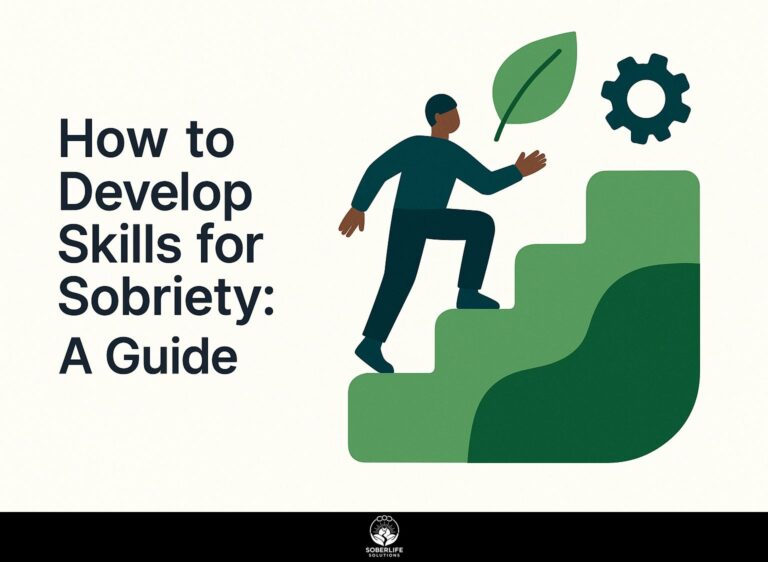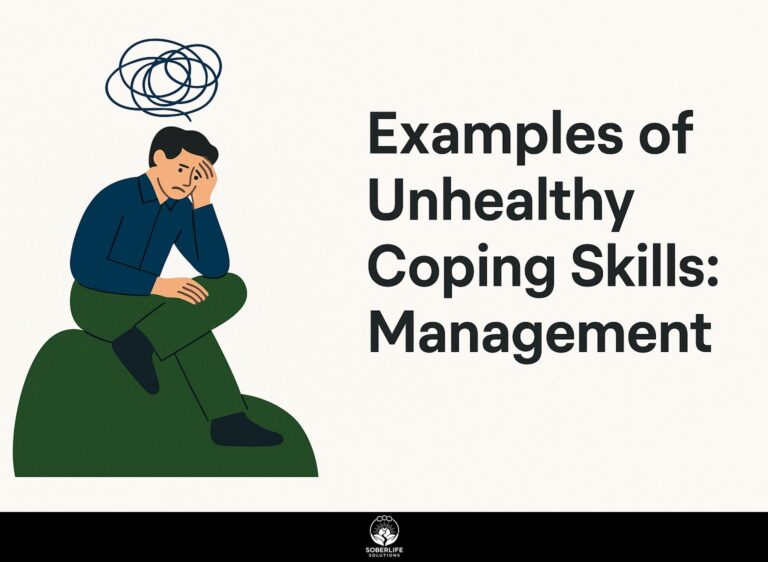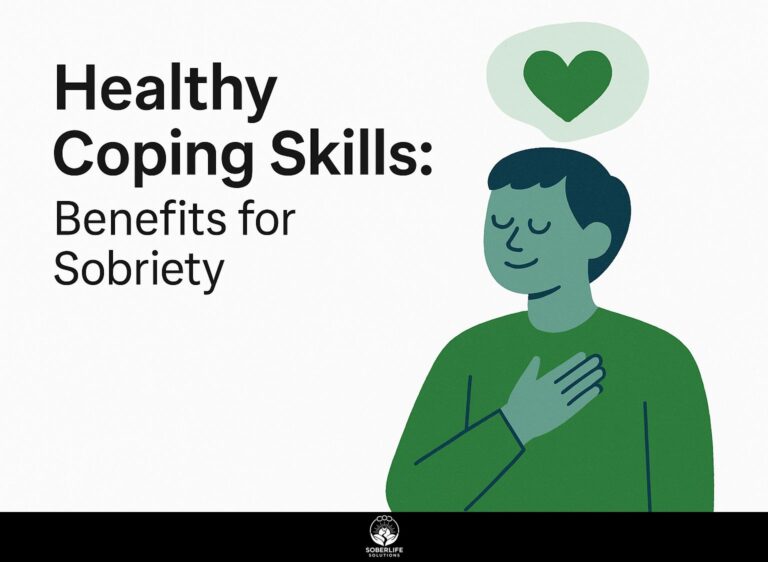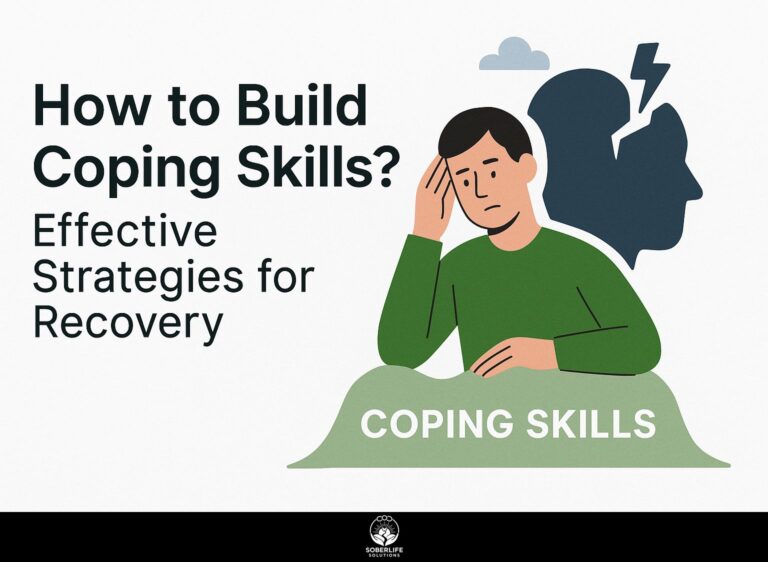How to Set Realistic Goals in Recovery
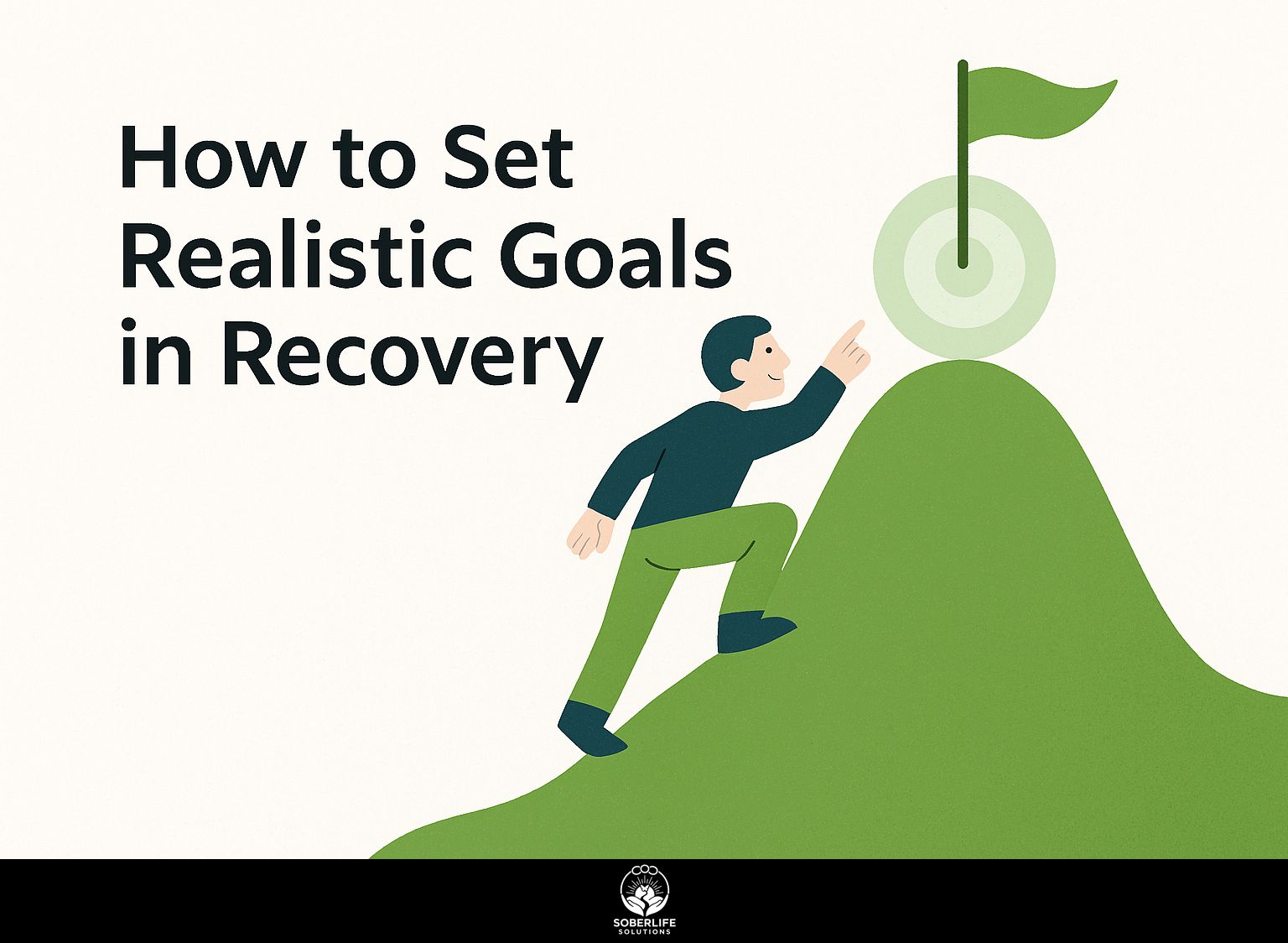
Setting realistic goals in recovery is important for long-term change, especially when dealing with the difficulties of addiction. Groups like SMART Recovery and Alcoholics Anonymous in San Antonio stress the need to set clear objectives during recovery. This article will explain useful **goal setting** techniques, such as the **SMART goals** method, to help you make achievable goals that encourage development and strength as you work toward recovery.
Key Takeaways:
Understanding Recovery
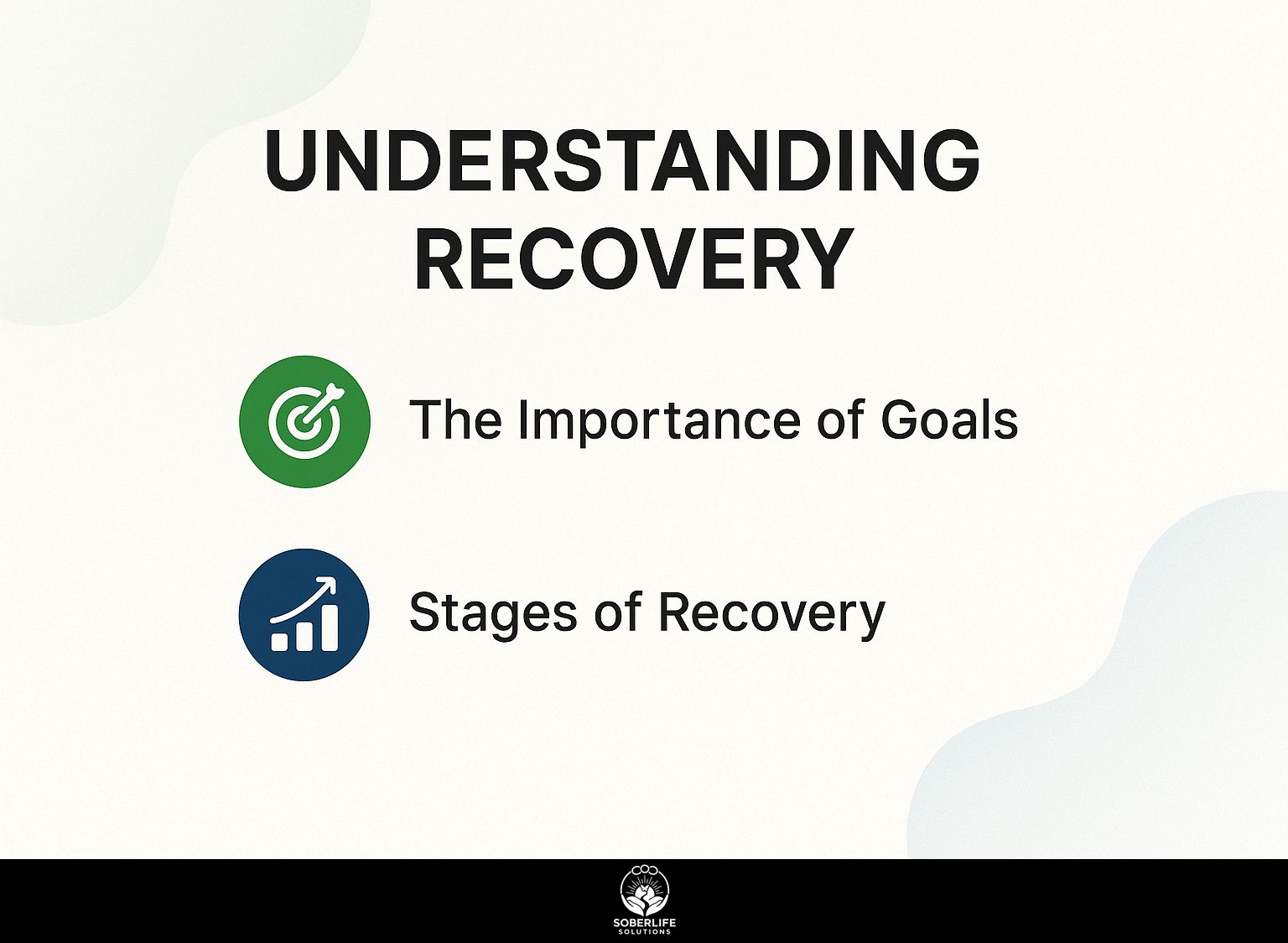
Grasping the many aspects of recovery is important for anyone starting this process, as it helps set goals that match personal values. For those interested in a deeper understanding, a comprehensive guide on addiction theory, available on Amazon, emphasizes the importance of aligning recovery goals with individual beliefs and values (as highlighted in a recent publication). For an extensive analysis of building effective habits during recovery, our step-by-step guide provides valuable insights into forming sustainable practices.
The Importance of Goals
Establishing clear objectives during recovery increases self-motivation and helps manage feelings, providing an uncomplicated way for people who want to make changes.
Setting clear goals, making sure progress can be measured, taking practical actions, focusing on important objectives, and setting deadlines can significantly enhance recovery outcomes.
For instance, rather than setting a vague goal like ‘I want to feel better,’ an individual might specify, ‘I will attend three AA meetings each week for the next month and share my experiences.’
Research shows that people who set specific goals improve their recovery by 30%, demonstrating the importance of clear goals during recovery. Research published in ScienceDirect supports this, indicating that structured goal setting plays a critical role in recovery from alcoholism.
Stages of Recovery
- The recovery process usually happens in five steps: pre-contemplation, contemplation, preparation, action, and maintenance. Each step needs different approaches.
In the pre-contemplation stage, individuals are often unaware of their issues. Educational tools like SMART Recovery’s self-help guides can be very helpful.
Moving to contemplation, encourage journaling to weigh pros and cons of change.
During preparation, create an actionable plan, perhaps using a digital tool like Trello to set specific goals.
The action phase involves engaging in group therapy or support meetings, which can be found through platforms like Meetup. This aligns with insights from Verywell Mind, which outlines the comprehensive stages of behavior change.
In maintenance, set up regular check-ins or evaluations to stay focused on ongoing improvement.
Defining Realistic Goals
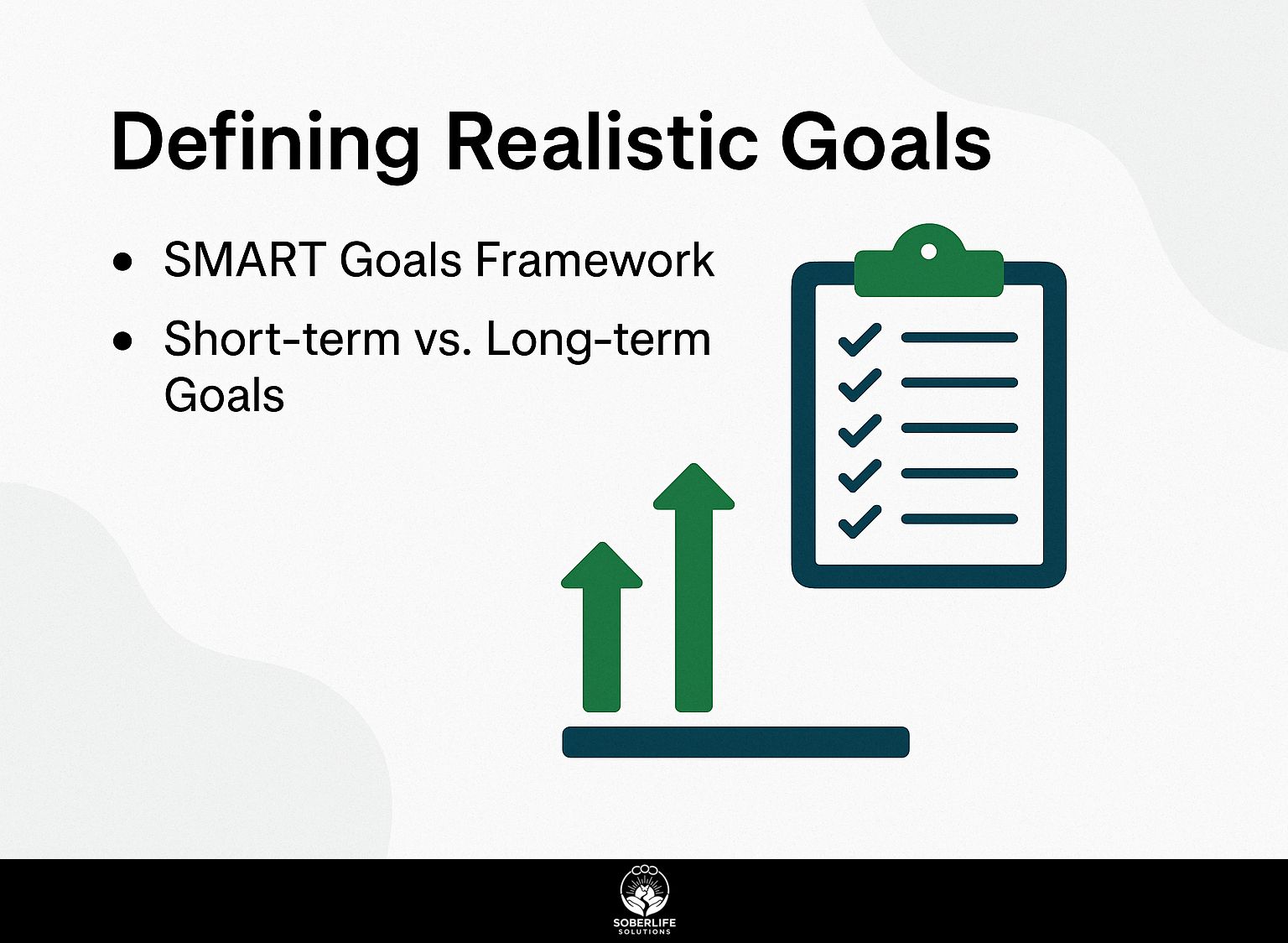
Setting practical goals is important in recovery. It helps you stay accountable and improves the likelihood of making permanent changes using the SMART method. Additionally, focusing on self-care can be a hidden gem in this journey, supporting your overall well-being. Discover more about practicing self-love in recovery to complement your goal-setting strategy.
SMART Goals Framework
The SMART goals method-Specific, Measurable, Achievable, Realistic, Time-bound-provides a clear way to set practical recovery goals.
For instance, rather than simply stating, “I want to go to therapy,” make it specificI will attend therapy sessions twice a week.”
To measure progress, define a clear benchmark, like tracking attendance on a calendar.
Make sure your goal is realistic by looking at your schedule and responsibilities-maybe consider doing it in the evenings or on weekends.
Make it realistic by recognizing potential obstacles, such as transportation issues, and plan alternatives.
Set a time frame, like committing to this schedule for three months, allowing for regular reassessment of your goals.
Short-term vs. Long-term Goals
Balancing short-term and long-term goals helps recovery by creating habits that lead to steady progress and improve self-confidence.
To effectively balance these goals, consider setting specific, achievable short-term objectives, such as completing a daily 30-minute exercise session or journaling three times a week (our guide on developing healthy habits for recovery offers practical advice).
In tandem, establish long-term goals, like running a 5K in six months or building a meditation practice over the year. Both aspects support each other; short-term achievements build confidence and motivation, while long-term aspirations provide direction.
Use planning tools like Habitica for tracking daily tasks and Trello for organizing long-term projects, ensuring consistent progress towards recovery.
Assessing Your Current Situation
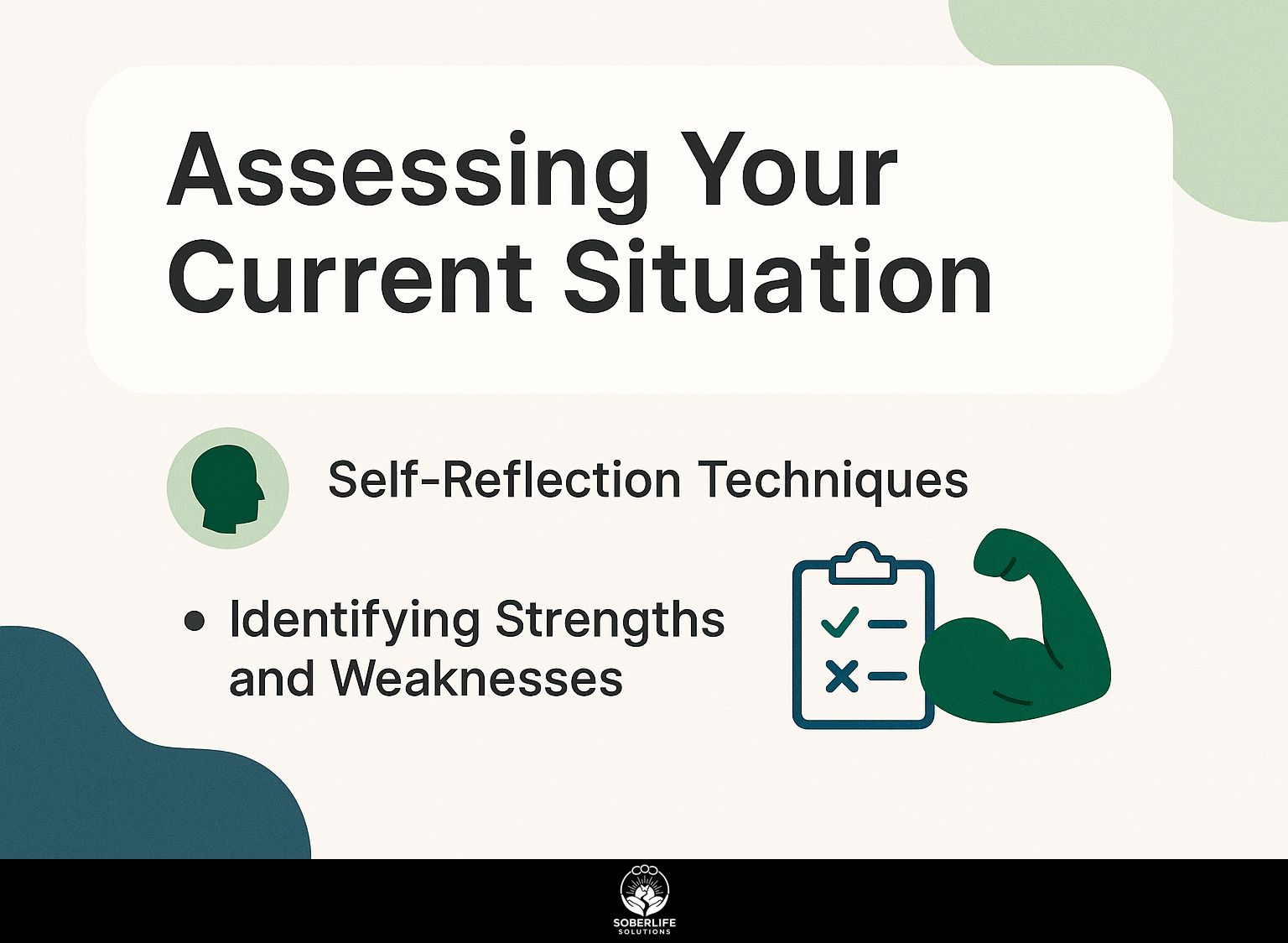
Carefully evaluating your present condition lays the groundwork for setting significant goals and achieving personal development during recovery.
Self-Reflection Techniques
Practicing self-reflection methods such as journaling and mindfulness can improve emotional well-being and help clarify personal values and goals.
To effectively use these methods, consider using the Day One Journal app to write in a journal daily. The app gives you prompts and tracks your mood.
To practice mindfulness, use guided meditation available on apps like Headspace or Calm. These apps offer organized sessions suitable for people at various skill levels.
Spending just ten minutes a day writing in a journal can help you notice repeated thought patterns, while regular meditation can increase your awareness.
Use these techniques together for a strong routine that increases self-awareness and emotional strength.
Identifying Strengths and Weaknesses
Knowing your strengths and weaknesses is essential for making a recovery plan that uses your skills and focuses on areas that need improvement.
To effectively evaluate your strengths and weaknesses, think about doing a SWOT analysis. Start by listing your strengths, such as specific skills or positive traits, and identify weaknesses, like time management issues.
Ask trusted peers or mentors for feedback to get outside opinions. Use tools like online personality tests or reflection journals to gain better knowledge.
Workshops on personal growth can provide a structured setting for improvement, giving you new strategies and ideas to improve your recovery plan.
Creating Your Goal Plan
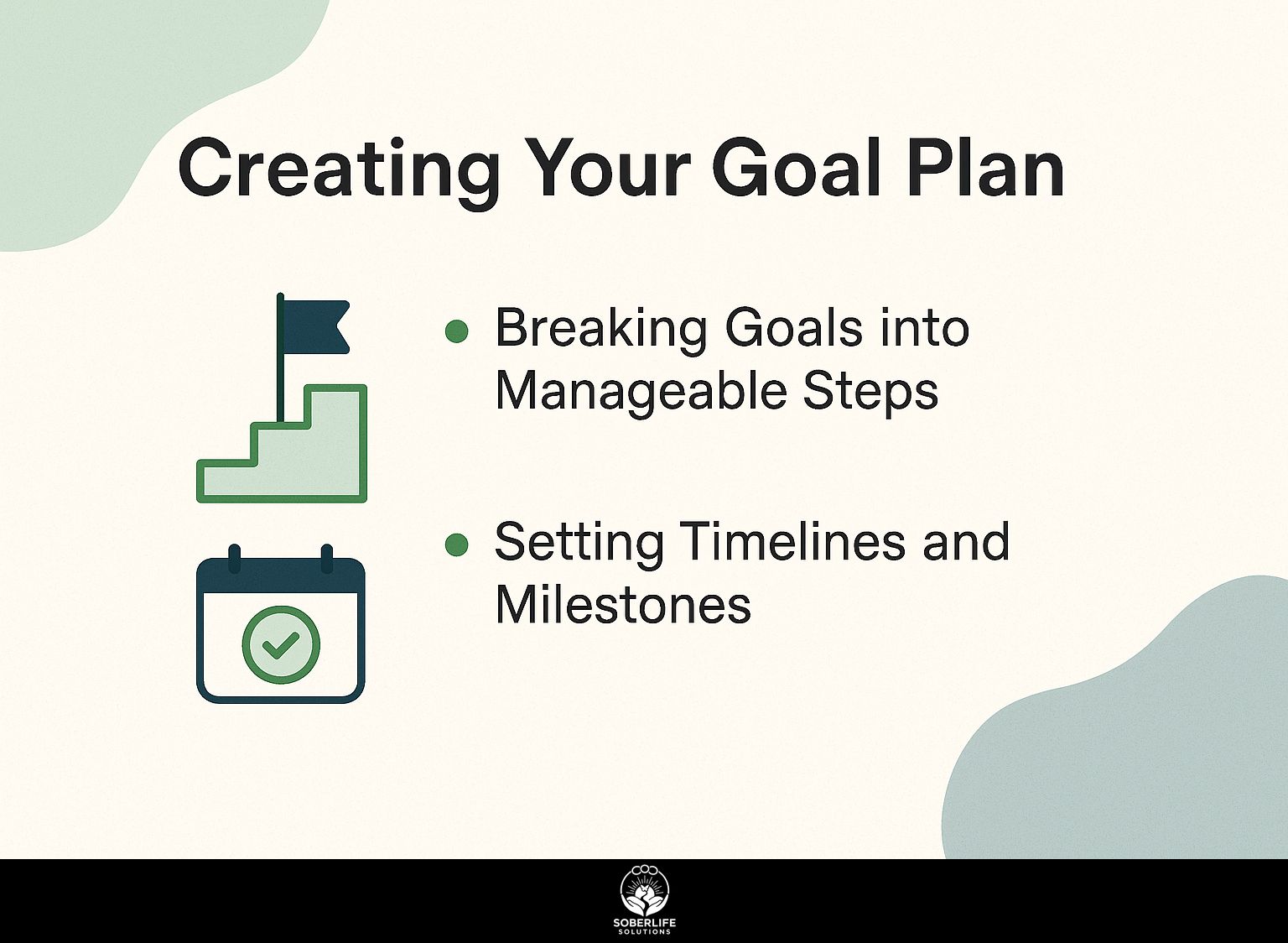
Setting a clear goal involves breaking down goals into simple tasks, which helps maintain clarity and focus during recovery.
Breaking Goals into Manageable Steps
Dividing big recovery goals into smaller, manageable steps can greatly increase motivation and help change behavior over time.
To effectively implement this, start by defining specific recovery goals, such as increasing daily walking distance. For example, if your aim is to walk 30 minutes daily, break this down into 5-minute increments across the week.
Track your progress using apps like MyFitnessPal or a simple journal. Each week, gradually increase your walking time by 5 minutes until you reach your target.
This method gives you a clear plan and helps you track your progress, keeping you encouraged during your recovery.
Setting Timelines and Milestones
Setting clear schedules and goals is important for responsibility, helping to regularly check progress during recovery.
To create effective timelines, start by identifying specific goals. Break these goals into smaller, manageable milestones and set target dates for each.
Tools like Trello or Asana can help with this; for instance, you can create boards for each goal and add checklists for milestone tasks. Regularly review your progress, adjusting timelines as necessary based on your pace.
Celebrate achievements, even small ones, to maintain motivation. This organized method improves concentration and makes the recovery process seem more achievable.
Staying Motivated
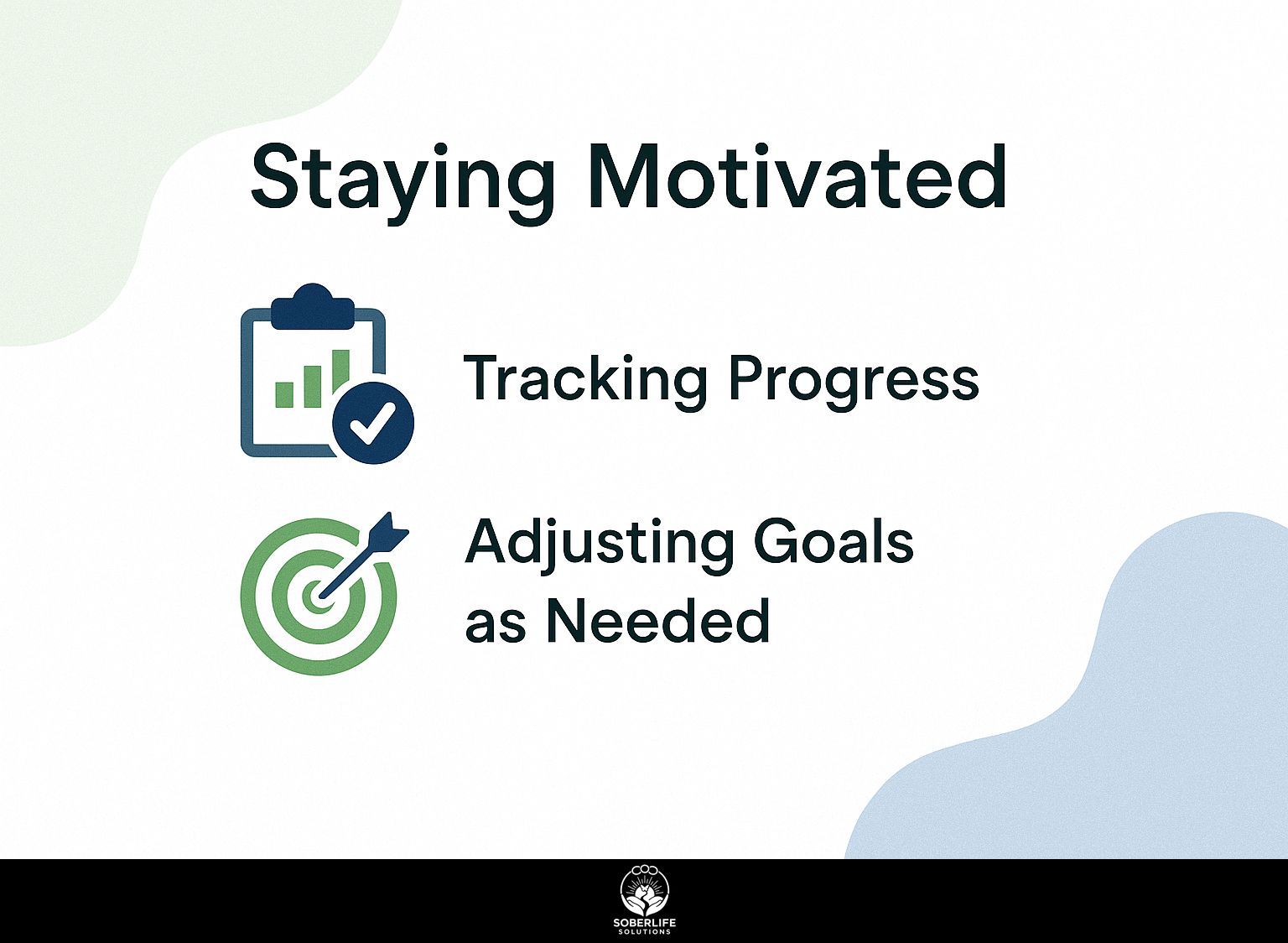
Keeping motivation while recovering depends on having good ways to measure progress and change goals as needed.
Tracking Progress
Using tools like Habitica or Simple Habit Tracker can make it easier to track progress and help you stay responsible and motivated in reaching recovery goals.
To improve your tracking, try using journal apps like Day One or keep a traditional bullet journal. Day One provides suggestions and notifications, whereas bullet journaling lets you design the pages yourself.
Track specific metrics such as the number of therapy sessions attended, mindfulness minutes practiced, or coping strategies employed.
Hold weekly reviews to find trends and set goals for the next week. This can greatly improve your involvement and progress in recovery.
Adjusting Goals as Needed
Flexibility in adjusting goals is essential for maintaining resilience during setbacks encountered in the recovery process.
For instance, consider Sarah, who initially aimed to run a marathon but faced injuries. She reassessed her goals, opting instead to focus on shorter distances and cross-training.
Her ability to adjust kept her motivated and prevented exhaustion. Apps like Strides let you track your progress and change your goals if necessary.
Regular check-ins-weekly or monthly-can also provide clarity on what’s working and what isn’t, ensuring that your goals evolve with your circumstances rather than becoming sources of frustration.
Seeking Support
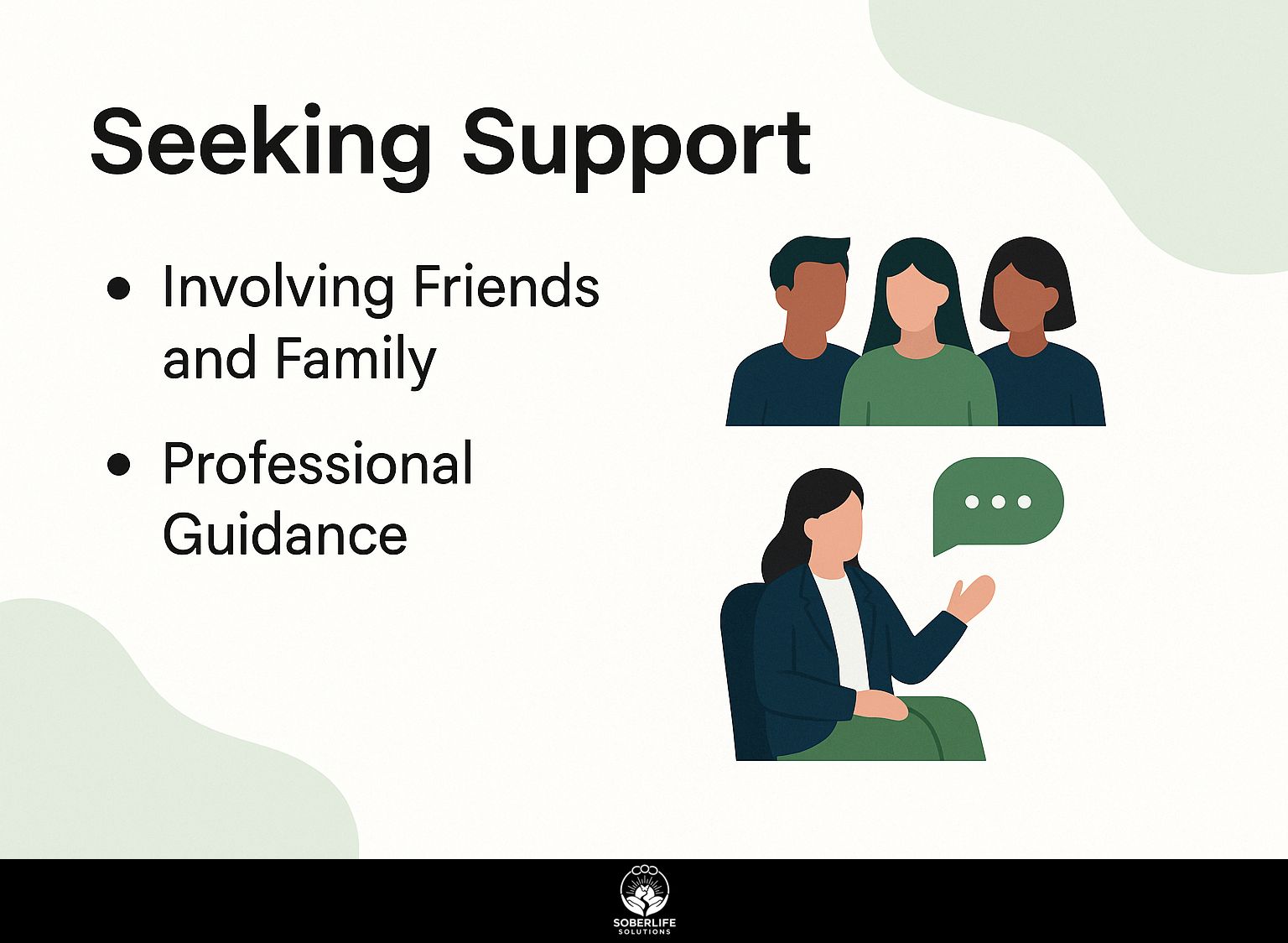
Getting help from friends, family, and professionals can greatly improve your recovery process, providing motivation and responsibility. This approach aligns with the principles outlined in our analysis of sober support systems that help.
Involving Friends and Family
Involving supportive friends and family members in your recovery process can create a positive environment conducive to achieving your goals.
To effectively engage your loved ones, start by scheduling regular check-ins, whether weekly or bi-weekly, to discuss your progress and challenges.
Invite them to attend support group meetings with you, turning it into something you do together to strengthen your connection.
Consider setting up a shared calendar for important events like therapy appointments or meetings, so everyone remains informed and involved.
Talking openly about how you feel and what you need helps your support group give you the right kind of help.
Professional Guidance
Talking to experts like therapists or counselors is important for building a strong base in addiction recovery with personal advice and help.
Think about exploring different therapy methods when you need help.
Cognitive-behavioral therapy (CBT) has a recovery success rate of about 60%, focusing on changing negative thought patterns. Dialectical behavior therapy (DBT) is another effective approach, especially for those with emotional regulation issues, with success rates similarly high.
To find suitable professionals, use resources like Psychology Today’s therapist directory or local addiction support groups. Always verify their qualifications and feedback to get good support that suits your needs.
Frequently Asked Questions
What are realistic goals in recovery?
Realistic goals in recovery are clear, doable, and trackable targets that help you recover. These goals should be suited to your personal needs and situation, and should push you without being too difficult.
Why is it important to set realistic goals in recovery?
Having achievable targets in recovery can keep you motivated and focused on your path to getting better. By dividing your recovery goal into smaller, doable steps, you are more likely to notice progress and experience a feeling of achievement. This can increase your self-confidence and help you continue making progress.
How can I set realistic goals in recovery?
To set practical goals during recovery, begin by defining your main recovery goal and then divide it into smaller, doable steps. Consider your personal strengths and limitations, and make sure your goals are specific, measurable, and achievable within a realistic timeframe.
What are some examples of realistic goals in recovery?
Some examples of realistic goals in recovery may include attending a support group regularly, practicing self-care activities, maintaining healthy relationships, or learning coping skills to manage triggers and cravings. These goals should fit your personal needs and can change as you move forward in your recovery.
How can I stay motivated to achieve my realistic goals in recovery?
To stay motivated, it can be helpful to regularly review and track your progress towards your goals. Recognize your achievements, even the minor ones, and reach out to family, friends, or a therapist when you encounter difficulties. It can help to think about why you set these goals and how they will help your recovery.
What should I do if I am struggling to achieve my realistic goals in recovery?
If you are struggling to achieve your goals, it may be helpful to reassess them and make any necessary adjustments. Think about getting help from a counselor or joining a support group, and remember to be patient and gentle with yourself. Recovery takes time, and facing challenges is normal. With consistent effort and a strong will, you can keep working towards what you want to achieve.

